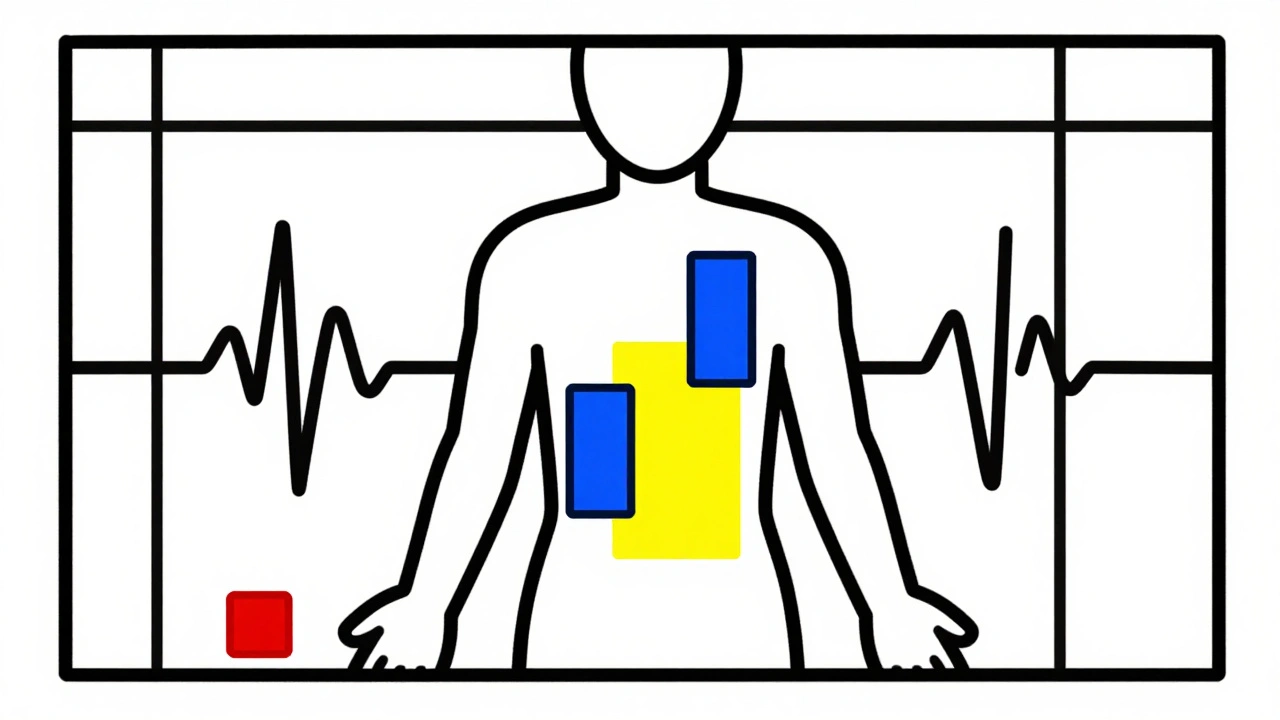Beta-Blockers: What They Do and When You Might Need One
Beta-blockers are a class of medicines that slow your heart rate and reduce the force it pumps with. Doctors prescribe them for high blood pressure, irregular heartbeats, chest pain, and sometimes to prevent migraines or steady a shaky hand. They are widely used and effective, but they aren’t the right choice for everyone.
How they work is simple: beta-blockers block beta-adrenergic receptors, mainly in the heart. That lowers heart rate and blood pressure and makes the heart use less oxygen. For people with heart disease this can cut the risk of bad events. Different beta-blockers affect the body in slightly different ways—some target the heart more, some are gentler on blood vessels.
Common uses and examples
You’ll see beta-blockers in several conditions: hypertension (high blood pressure), angina (chest pain), atrial fibrillation and other arrhythmias, heart failure (specific types), migraine prevention, and essential tremor. Popular names you might recognize include propranolol, metoprolol, atenolol, bisoprolol, and nebivolol. Some are short-acting, some long-acting; some are selective for heart beta receptors, others are non-selective.
Side effects, risks, and who should be careful
Common side effects include tiredness, slow heartbeat, dizziness, and cold hands or feet. They can worsen asthma or COPD because non-selective beta-blockers can tighten airways. People with diabetes need to be cautious: beta-blockers can mask the usual signs of low blood sugar, like a fast heartbeat, so you may not notice hypoglycemia as quickly.
Abruptly stopping a beta-blocker can cause rebound high blood pressure or angina, so doctors usually taper the dose. Beta-blockers can also interact with other drugs that lower heart rate or blood pressure. Tell your prescriber about all medicines you take, including over-the-counter cold meds and some heart rhythm drugs.
Monitoring is straightforward: check blood pressure and pulse regularly, especially after changing dose. If your pulse drops below about 50 beats per minute or you feel faint, contact your doctor. For heart failure patients, doctors choose specific beta-blockers and follow a slow increase in dose while watching symptoms.
Practical tips: take your pill at the same time each day, don’t skip doses, and don’t stop suddenly. If you have breathing issues, diabetes, or severe circulation problems, ask for a beta-blocker that is selective for the heart or consider other options. When buying meds online, use reputable pharmacies that require a prescription and list clear contact details—avoid offers that seem too cheap or don’t ask for medical info.
If you’re unsure whether a beta-blocker fits your needs, bring a list of symptoms and meds to your clinician and ask about benefits versus risks for your exact health picture. A short conversation can save a lot of trial and error.
Pregnancy and breastfeeding need special care: some beta-blockers are safer than others, so talk to your obstetrician before using them. Also mention driving or heavy machinery—if you feel dizzy or very tired, avoid those activities until you know how the medicine affects you. Keep a medication list with you, always handy.

Slow Up-Titration Schedules: How Gradual Dose Increases Build Tolerance to Side Effects
Dec 7 2025 / MedicationsSlow up-titration schedules help your body adjust to new medications by gradually increasing doses over weeks or months. This reduces side effects and improves long-term adherence, especially for drugs like GLP-1 agonists and beta-blockers.
VIEW MORE
Nebivolol vs Metoprolol: The Ultimate Guide to Heart Rate Control and Beta-Blocker Choices
May 3 2025 / Health and WellnessStruggling to pick between nebivolol and metoprolol for heart rate or blood pressure control? Here’s a clear, practical guide breaking down how each beta-blocker works, their dosing specifics, and real-life tips about side effects. This article explains in plain language how both drugs compare, highlights surprising facts, and details who might benefit most from each one. Expect practical advice, not fluff. Whether you’re new to beta-blockers or just want the facts, this guide is tailored for everyday readers.
VIEW MORE